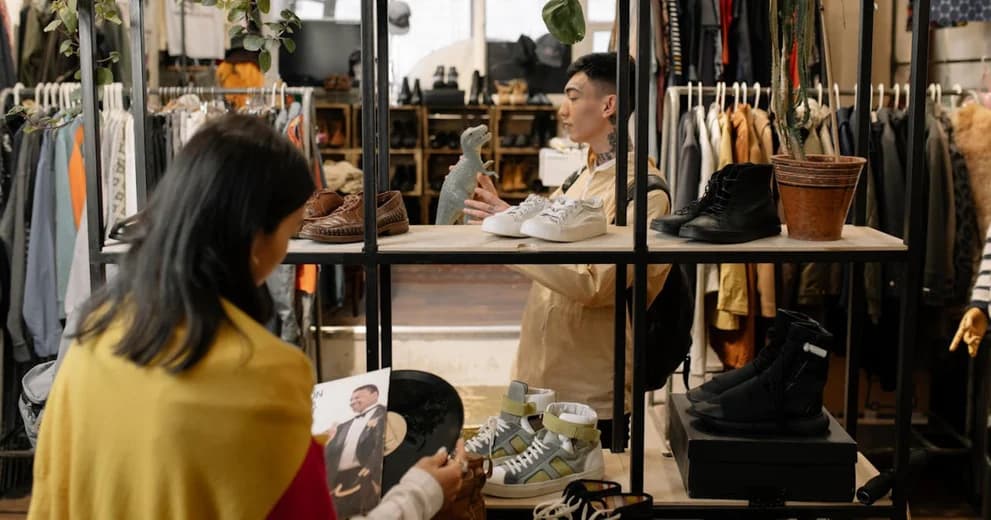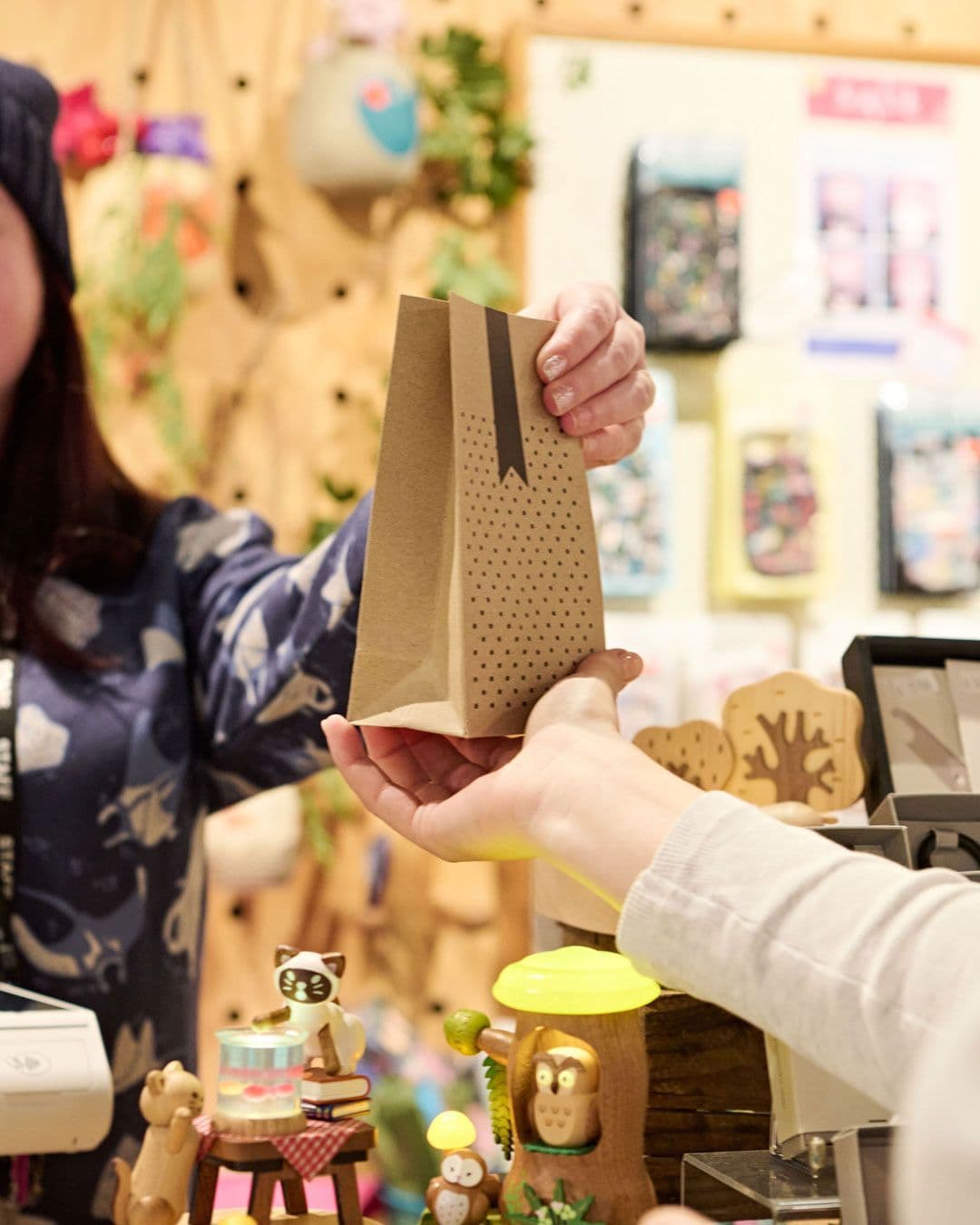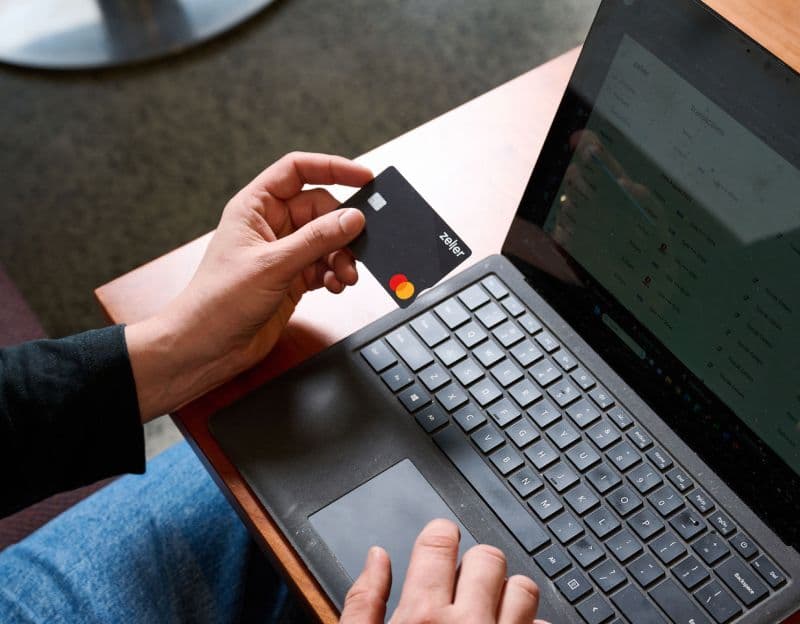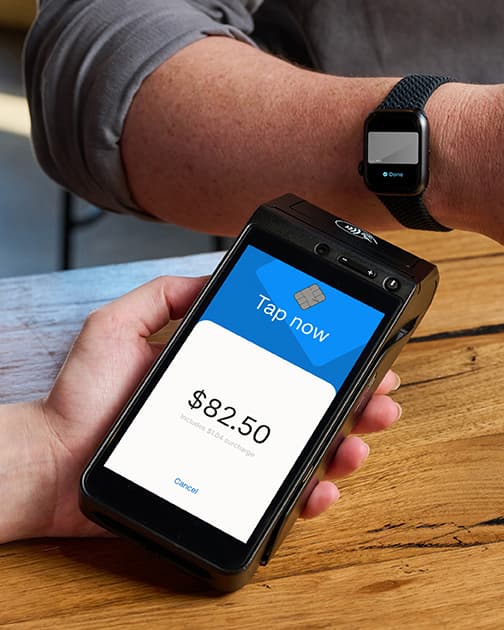
- Business Growth & Optimisation
Your newest customer: Understanding Gen Z’s shopping habits
As Gen Z garners more and more spending power, it’s key to understand where (and how) they shop.
When new generations enter the workforce and gain purchasing power, they shape consumer trends. Today, the generation shifting market demand is Gen Z.
These young consumers haven’t ever needed to wait a week for delivery. Fast (and often, free) express shipping has been the norm since Gen Z first began shopping. In fact, Gen Z hasn’t really needed to wait for anything. The widespread availability of Buy Now, Pay Later payment methods (BNPL) has made holding out for payday a thing of the past.
Already, we can see how speed and convenience are shaping consumer habits. However, Gen Z is a diverse group of young adults whose behaviours can be surprising. For example, contrary to popular belief, this generation wants to shop in-store.
Let’s look beyond the generalisations to see what the data says about Gen Z’s shopping habits, and how you can use these findings to position your retail business for growth.
Who is Gen Z?
Gen Z is best defined as those born between January of 1995 and December of 2002. The eldest will be celebrating their 27th birthdays in 2021; the youngest are turning 19.
It’s the largest generation Australia has ever seen, comprising around 20% of our current population. For this reason, among others, it’s anticipated that Gen Z will make more of an impact on our retail industries than previous generations.
There are 2 billion members of Gen Z across the globe and by 2025, they will comprise more than a quarter of the workforce. They are the first fully global generation, meaning they’ve had the technology to connect with people all over the world their entire lives — which is why Gen Z is sometimes referred to as generation connected or dot com kids.
What do Gen Z shoppers want?
A few key trends have already emerged about the way Gen Z wants to shop — it’s up to you, as a business owner, to glean insights from these trends and work changes into your business.
We’ve done the work to review a number of current Australian studies. Here’s what the data shows and what it means for your retail business.
1. Gen Z want a physical store
As the first generation to be born into the world of smartphones, one might think that Gen Z prefers to do everything online. However, that is far from the truth.
In fact, in a survey conducted by IBM, 98% of Gen Z respondents said they make purchases in person at least some of the time. While some Gen Z consumers prefer to shop online, three times as many shoppers in the same generation would rather do so in person — at a physical retail store.
This is an important finding for any retailers considering picking up stumps and moving to a solely online model, after last year’s lack of foot traffic due to lockdowns.
Having a physical shopfront may be even more important to customers of the future.
This is an important finding for any retailers considering picking up stumps and moving to a solely online model, after last year’s lack of foot traffic due to lockdowns.
2. Gen Z want convenience
Gen Z appreciates speed and convenience. It makes sense, given all the technology this generation has grown up with. For instance, 53% of Gen Z consumers expect to be able to access Wi-Fi in stores, for free, so they can obtain coupons and deals online. Some shoppers within the generation even prefer stores to have phone charging stations, since they use their devices so much.
Unsurprisingly, this generation is also embracing digital wallets as a more convenient way to pay. 41% of them use mobile wallets, and most would like to access them. Members of Gen Z have grown up in an era where smartphones are practically considered an extension of the human arm, and wearable tech is an affordable accessory available to the masses — so being able to pay for products by tapping their wrist or mobile phone to an EFTPOS payment terminal is nothing out of the ordinary. For retail stores, this trend indicates the importance of being able to accept payments via smart wallets.
In a similar vein, the same study found that members of Gen Z — for whom most things have always been available on demand — hate waiting in line. This requires stores to have excellent processes in place to enable a faster shopping experience. For example, retail stores could upgrade to a fully mobile EFTPOS terminal that allows them to take payment from around the store to alleviate queues.
3. Gen Z want businesses to “do good”
A recent survey of almost 5,000 Australian Gen Z’s suggests that in 2021 and beyond, businesses need to make some sort of positive impact.
42% of Gen Z respondents say they have deepened their relationship with a business because they believed what it sold had a positive impact, whether environmental or societal. Perhaps more persuasive is the finding that 77% have reduced or stopped spending entirely with a business that didn’t align with their ethical standards.
4. Gen Z want to spend their own money
Gen Z has markedly different spending habits to previous generations — overall, it’s a generation seeking low-commitment, simple solutions that are budget-focused, customer-centric, and empowering. Of those Gen Zs who choose to use BNPL service Afterpay, 94% link their account to a debit card, not a credit card — so they’re using their own money (albeit in a very different way to previous generations).
Afterpay’s co-founder puts this shift in attitude down to a better understanding of finance. “As a generation who has a firm grasp of the role finance plays in their lives, Gen Z Aussies are emerging as a self-motivated generation that pay, play and save differently from the Millennials that came before them.”
After all, this generation grew up during the biggest financial crisis since the Great Depression. Is it any wonder they are less likely to rely on credit cards than their older siblings and parents?
What does this mean for retail business owners in 2021?
Many Gen Zs still live at home — so it’s unsurprising that 70% of them directly influence family purchases, such as furniture, food, and other household goods. The same percentage of parents of Gen Z children say they turn to their children for purchasing advice. As a retail business, that means you want them on side.
Retail businesses today must make a conscious effort to cater to Gen Z. Some obvious takeaways from the above are:
buck the e-commerce trend and keep your physical store
switch to a mobile payment terminal that can process payments made via mobile wallet
take a stance, perhaps by stocking eco-friendly products or supporting a community cause
allow shoppers to use BNPL services
The benefits of changing the way you sell are clear: by providing Gen Z with a retail experience that meets the above needs, stores are more likely to attract these young customers — the customers of the future, and the influencers of the present.
We’re building the next generation of financial service solutions
Zeller Terminal is a fully mobile EFTPOS payments terminal, with a long-lasting battery, so you can take payment from wherever is most convenient for the customer. Receipts can be customised to include information about returns, competitions, community sponsorships, or anything else you feel relevant. It’s just another way to communicate with your customers. Zeller Terminal accepts digital wallet payments, and will soon enable your customers to pay via BNPL service ZipPay — providing even more payment options.
Read more about Zeller Terminal and discover how it can help you provide an even better experience for your next generation of customers.

Accelerate your retail cashflow
Learn how Zeller can help grow your business and accelerate your cash flow with fast, secure payment solutions.



